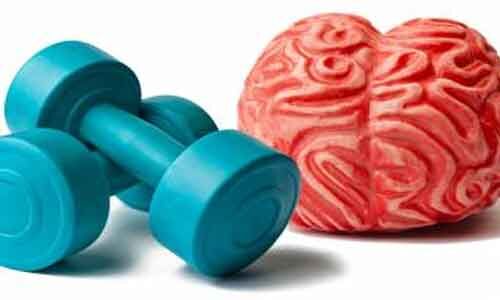- Home
- Medical news & Guidelines
- Anesthesiology
- Cardiology and CTVS
- Critical Care
- Dentistry
- Dermatology
- Diabetes and Endocrinology
- ENT
- Gastroenterology
- Medicine
- Nephrology
- Neurology
- Obstretics-Gynaecology
- Oncology
- Ophthalmology
- Orthopaedics
- Pediatrics-Neonatology
- Psychiatry
- Pulmonology
- Radiology
- Surgery
- Urology
- Laboratory Medicine
- Diet
- Nursing
- Paramedical
- Physiotherapy
- Health news
- Fact Check
- Bone Health Fact Check
- Brain Health Fact Check
- Cancer Related Fact Check
- Child Care Fact Check
- Dental and oral health fact check
- Diabetes and metabolic health fact check
- Diet and Nutrition Fact Check
- Eye and ENT Care Fact Check
- Fitness fact check
- Gut health fact check
- Heart health fact check
- Kidney health fact check
- Medical education fact check
- Men's health fact check
- Respiratory fact check
- Skin and hair care fact check
- Vaccine and Immunization fact check
- Women's health fact check
- AYUSH
- State News
- Andaman and Nicobar Islands
- Andhra Pradesh
- Arunachal Pradesh
- Assam
- Bihar
- Chandigarh
- Chattisgarh
- Dadra and Nagar Haveli
- Daman and Diu
- Delhi
- Goa
- Gujarat
- Haryana
- Himachal Pradesh
- Jammu & Kashmir
- Jharkhand
- Karnataka
- Kerala
- Ladakh
- Lakshadweep
- Madhya Pradesh
- Maharashtra
- Manipur
- Meghalaya
- Mizoram
- Nagaland
- Odisha
- Puducherry
- Punjab
- Rajasthan
- Sikkim
- Tamil Nadu
- Telangana
- Tripura
- Uttar Pradesh
- Uttrakhand
- West Bengal
- Medical Education
- Industry
Brain exercises may curb cognitive impairment

Exercises aimed at improving vision-based speed of processing (VSOP) and other brain functions may slow the progress of mild cognitive impairment, according to New York-based researchers.
"VSOP training strengthens cognitive and neural efficiency, with concomitant vagal regulation of cardiac control, suggesting overall better capacity for adaptation to stress," Dr. Feng V. Lin and colleagues at the University of Rochester, in New York, write in Neuroimage.
As Dr. Lin told Reuters Health by email, "the brain-heart relationship is important; cardiovascular function-driven stress regulation, an important capacity for living and thriving, can be enhanced by brain training in old age."
She and her colleagues studied 84 older adults (mean age, 74.7), all of whom had amnestic mild cognitive impairment (aMCI). Following baseline assessment, participants were randomly assigned 2:1 to VSOP or to active-control mental leisure activities (MLA). Participants in each group were encouraged to train for 6 weeks, completing four 1-hour sessions each week.
Outcome assessors and participants were blinded to group randomization. The MLA group played online games including word search, Sodoku and Solitaire. The other participants engaged in a suite of five BrainHQ (Posit Science) exercises aimed at boosting processing speed and attention (PS/A).
For example, in one of these exercises, called Hawks Eye, a cluster of birds briefly flashed on to the screen in peripheral vision and participants had to identify the one target bird that differed from the others.
Using a variety of measures including resting and cognitive task-based ECG, and resting fMRI pre- and post-intervention, "we aimed to test whether PS/A causally influences vagal control of the autonomic nervous systems via their shared central neural pathways in aMCI," the researchers write.
Compared with controls, they found that changes in PS/A and salience-network connectivity "significantly predicted change in high frequency heart rate variability from baseline to post-test and/or 6-month-follow-up." Age, neurodegeneration, or gender did not affect these relationships.
Interventions in PS/A, they conclude, "may be a viable approach for promoting adaptation capacity in groups at risk for dementia."
Dr. Henry Mahncke, CEO of Posit Science, told Reuters Health by email that "this is an encouraging science-based message of hope for people with this condition (aMCI), who might feel that their brains are on an inevitable path of decline."
But, added Dr. Mahncke, who was not involved in the research, "that's not the case—these results show that people with aMCI have brains that are still capable of positive change with the right kind of brain training. And of course, the same is true for normal cognitive aging, where many large scale trials show that people can improve their brain function and cognitive function with brain training."
The study had no commercial funding, and the researchers report no conflicts of interest.
Hina Zahid Joined Medical Dialogue in 2017 with a passion to work as a Reporter. She coordinates with various national and international journals and association and covers all the stories related to Medical guidelines, Medical Journals, rare medical surgeries as well as all the updates in the medical field. Email: editorial@medicaldialogues.in. Contact no. 011-43720751
Dr Kamal Kant Kohli-MBBS, DTCD- a chest specialist with more than 30 years of practice and a flair for writing clinical articles, Dr Kamal Kant Kohli joined Medical Dialogues as a Chief Editor of Medical News. Besides writing articles, as an editor, he proofreads and verifies all the medical content published on Medical Dialogues including those coming from journals, studies,medical conferences,guidelines etc. Email: drkohli@medicaldialogues.in. Contact no. 011-43720751


